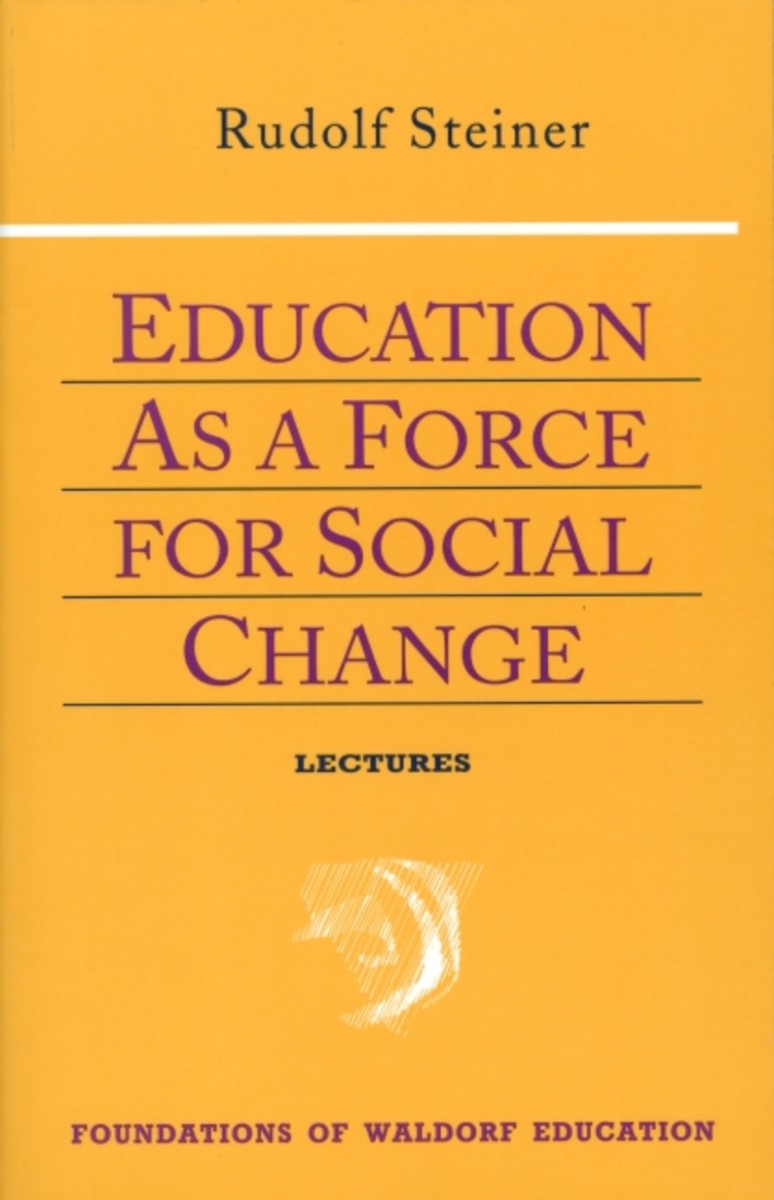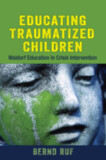Education as a Force for Social Change
(CW 296, 192, 330/331)
Introduction by Nancy Parsons Whittaker
Translated by Nancy Parsons Whittaker and Robert F. Lathe
- Publisher
SteinerBooks - Published
1st July 1997 - ISBN 9780880104111
- Language English
- Pages 272 pp.
10 lectures, Dornach & Stuttgart, Apr. 23 – Aug. 17, 1919 (CW 296, 192, 330/331)
These illuminating lectures were given one month before the opening of the first Waldorf school, located in Stuttgart, following two years of intense preoccupation with the social situation in Germany as World War I ended and society sought to rebuild itself.
Well aware of the dangerous tendencies present in modern culture that undermine a true social life—psychic torpor and boredom, universal mechanization, and growing cynicism—Steiner recognized that any solution for society must address not only economic and legal issues but also that of a free spiritual life.
Steiner also saw the need to properly nurture in children the virtues of imitation, reverence, and love at the appropriate stages of development in order to create mature adults who are inwardly prepared to fulfill the demands of a truly healthy society—adults who are able to assume the responsibilities of freedom, equality, and brotherhood.
Relating these themes to an understanding of the human as a threefold being of thought, feeling, and volition, and against the background of historical forces at work in human consciousness, Steiner lays the ground for a profound revolution in the ways we think about education.
Also included here are three lectures on the social basis of education, a lecture to public school teachers, and a lecture to the workers of the Waldorf Astoria Cigarette Company, after which they asked him to form a school for their children.
German sources: Die Erziehungsfrage als soziale Frage (GA 296); lectures 4, 5, and 6, the "Volkspädagogik" lectures in Geisteswissenschaftliche Behandlung sozialer und pädagogischer Fragen (GA 192); lectures 2 and 11, Neugestaltung des sozialen Organismus (GA 330–331).
C O N T E N T S:
Introduction by Nancy Parsons Whittaker
Chronology
Part One: Education as a Social Force
6 lectures, August 9–17, 1919
Part Two: Backgrounds of Waldorf Education
Proletarian Demands and How to Put Them into Practice, April 12, 1919
The Social Basis of Public Education: 3 lectures, May 11–June 1, 1919
The Tasks of Schools and the Threefold Social Organism, June 19, 1919
NotesFurther Reading
Index
Rudolf Steiner
Rudolf Steiner (b. Rudolf Joseph Lorenz Steiner, 1861–1925) was born in the small village of Kraljevec, Austro-Hungarian Empire (now in Croatia), where he grew up. As a young man, he lived in Weimar and Berlin, where he became a well-published scientific, literary, and philosophical scholar, known especially for his work with Goethe’s scientific writings. Steiner termed his spiritual philosophy anthroposophy, meaning “wisdom of the human being.” As an exceptionally developed seer, he based his work on direct knowledge and perception of spiritual dimensions. He initiated a modern, universal “spiritual science” that is accessible to anyone willing to exercise clear and unbiased thinking. From his spiritual investigations, Steiner provided suggestions for the renewal of numerous activities, including education (general and for special needs), agriculture, medicine, economics, architecture, science, philosophy, Christianity, and the arts. There are currently thousands of schools, clinics, farms, and initiatives in other fields that involve practical work based on the principles Steiner developed. His many published works feature his research into the spiritual nature of human beings, the evolution of the world and humanity, and methods for personal development. He wrote some thirty books and delivered more than six thousand lectures throughout much of Europe. In 1924, Steiner founded the General Anthroposophical Society, which today has branches around the world.







